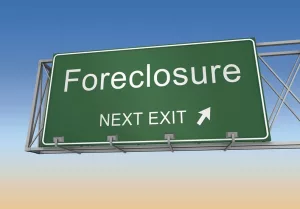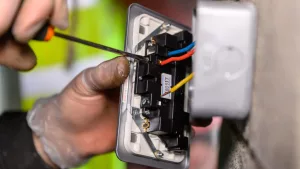A cooperative (coop) mortgage is secured by the borrower’s ownership interest in the cooperative corporation, which includes the borrower’s stock certificate and proprietary lease. A coop mortgage consists of two primary documents:
- a promissory note and
- a cooperative loan security agreement.
A promissory note is a written promise to pay back a debt. The cooperative loan security agreement uses the stock certificate and lease as collateral to secure the lender’s debt.
Upon finalizing a coop mortgage, the bank will file a UCC Financing Statement and hold the physical stock certificate and proprietary lease as collateral until the debt is fully repaid.
It is essential to note that co-op apartments are not considered real property. Consequently, a coop mortgage is not technically classified as a mortgage. Indeed, traditional mortgages are reserved for real property, such as condominiums and houses. As a result, banks must rely on the Uniform Commercial Code (UCC) to extend secured loans for co-op apartments.
When filing for bankruptcy, while it may delay a foreclosure, it cannot stop it entirely. This is why title companies conduct a bankruptcy search the day before a foreclosure auction. If real property is involved, the bank will need to file a lift-stay motion. The process is similar for a coop. However, filing for bankruptcy can buy you additional time to consider a short sale, albeit at the cost of being in bankruptcy.
Co-op Foreclosure Process
The foreclosure process for cooperative (co-op) apartments is significantly faster than that for condominiums, houses, and other types of real estate. This is because lenders do not need to go to court for a judgment to seize and sell the property.
Since a loan on a co-op apartment is not technically classified as a mortgage, a bank can conduct a foreclosure sale under Article 9 of the Uniform Commercial Code without requiring a judge’s approval. This is advantageous for lenders because it allows them to maximize their recovery by avoiding the costs and delays associated with a lengthy judicial foreclosure process.
1. Bank Sends Notice of Default for the Co-op Foreclosure
The lender usually sends an official notice of default within five to fifteen days after a borrower fails to make a loan payment.
It’s essential to note that the Uniform Commercial Code (UCC) does not define the term ‘default,’ so it is crucial to carefully review the terms outlined in the loan or security agreement.
2. Borrower’s File Gets Referred to Bank’s Attorney
If the borrower fails to rectify the default, their case will be referred to the bank’s attorney for further action. The attorney will typically send additional notices and make further demands for the borrower to remedy the default.
3. Newspaper Publication of Pending Foreclosure
If the borrower has not addressed the default, the bank’s attorney will publish a notice of the upcoming foreclosure for the co-op apartment in a local newspaper for three consecutive weeks.
Foreclosure attorneys have indicated that the specific newspaper used for this requirement is not a significant factor.
As a result, banks’ attorneys often select the least expensive local paper to fulfill this obligation.
4. Courthouse Auction
If the borrower has not reached out to negotiate, pay off the loan, refinance, or sell the property through a short sale, then the local county courthouse will hold an auction.
5. Property Is Sold or Retained by the Bank
The bank will set a reserve price, commonly referred to as the “knockdown price,” which is the minimum amount the bank will accept from a bidder.
If a bidder offers even just $1 more than the knockdown price, the co-op apartment will be sold to that bidder. However, if no bids exceed the bank’s reserve price, the bank will take ownership of the property, and it will be classified as a Real Estate Owned (REO) property.
6. Managing Agent Transfers Ownership
In a co-op foreclosure, board approval is not required. The bank will deliver the physical stock certificate and proprietary lease to the managing agent’s office. The managing agent will then issue a new stock certificate and lease the foreclosed co-op apartment to the buyer.
Please note that a co-op lien search must be conducted before proceeding.
Co-op Foreclosures in NYC
Co-op foreclosures are extremely rare today in residential real estate, and they were also uncommon during the Great Financial Crisis of 2007-2008.
This rarity occurs because co-op boards typically do a good job of vetting and approving potential buyers. In contrast, condominium boards do not have the same control over buyer approval.
Additionally, the New York City real estate market is highly liquid, with strong demand from buyers worldwide. This makes it relatively easy to find a buyer through a short sale if a co-op shareholder falls behind on monthly payments. At the right price, it is almost certain that a buyer can be found for a co-op apartment in today’s market.
Short sellers should be aware that banks require various personal and financial details when applying for a short sale.
This information can include:
- Your social security number
- Bank account statements
- Retirement account statements
- Brokerage account statements
- W-2 forms
- And more
Your lender can technically sue you for the deficiency in a co-op short sale. They might do this if they think you have other assets to cover their loss. However, this rarely happens in real life. It is usually not worth the effort for a bank to pursue a borrower for a deficiency.
 co-op foreclosure, which can save several months.
co-op foreclosure, which can save several months.

